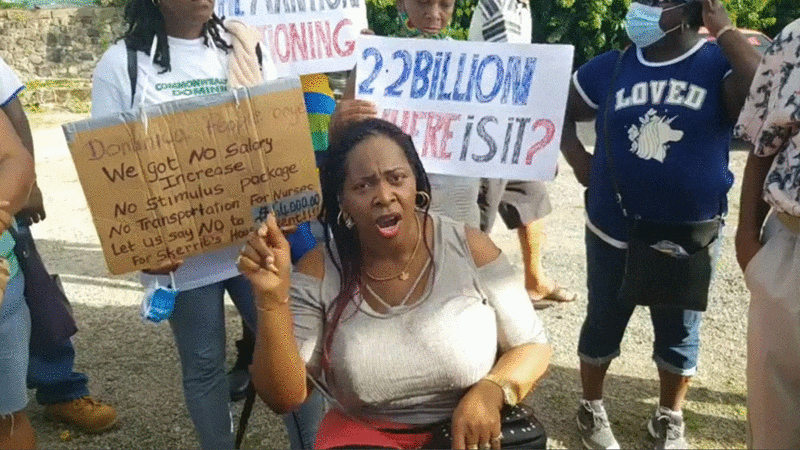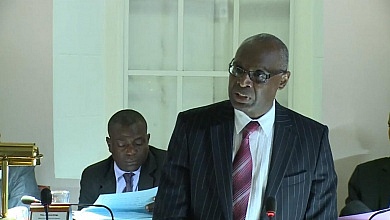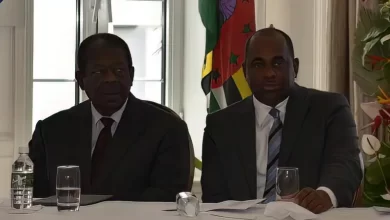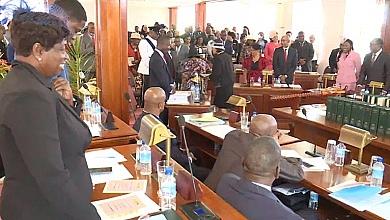Security Minister Claims March 19 Protest Was Attempted Storming of Parliament
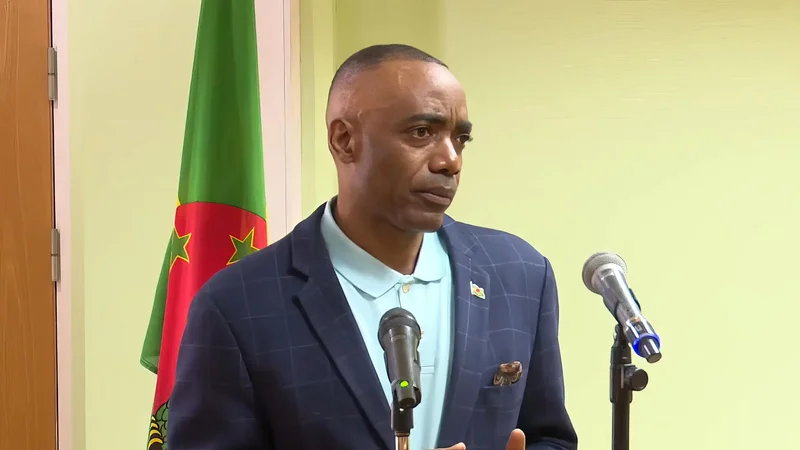
In a development that has deepened national debate around civil liberties and governance, Dominica’s Minister for National Security, Rayburn Blackmoore, has claimed that the protest staged outside Parliament on March 19, 2025, was not merely a public demonstration—but an attempted “storming” aimed at unseating the government.
At a press conference following the incident, Blackmoore stated that intelligence gathered by law enforcement and his ministry pointed to a coordinated effort to disrupt the operations of Parliament, which was sitting that day to debate controversial electoral reform legislation.
Dominica cannot allow 180 people to continuously take it on their own, to stone when they want and to fight with police when they want. This was not just a protest—it was a deliberate attempt to create instability and interfere with the democratic process.
Minister for National Security, Rayburn Blackmoore
Protest Response Sparks Division
The protest, organized by the Electoral Reform Coalition (ERC) and supported by the United Workers Party (UWP) and other opposition voices, was intended to register public dissatisfaction over three electoral reform bills: the Electoral Commission Bill 2024, House of Assembly (Elections) Bill 2024, and Registration of Electors Bill 2024.
Participants argued that the bills lacked transparency and failed to incorporate key public recommendations. The event quickly escalated when demonstrators breached barricades and police responded with tear gas and rubber bullets. At least one officer was reported injured, and multiple protestors sustained injuries as well.
Blackmoore’s assertion that the protest was tantamount to an “attempted storming” has drawn both domestic and international scrutiny, particularly in light of arrests made under the Riot Act, which critics say is outdated and has been misapplied in this context.
Legal Support and Government Defense
Director of Public Prosecutions Sherma Dalrymple publicly backed the police response, arguing that officers acted “reasonably” given the circumstances. She emphasized that while Dominica’s Constitution protects freedom of assembly, these rights are not absolute and must be exercised in accordance with public order laws.
The police have a duty to protect institutions of state. When protest crosses into aggression and destruction, the response must be measured, but firm.
Director of Public Prosecutions Sherma Dalrymple
At least 25 individuals have since been charged, including former MPs and ERC organizers. They face indictable charges of “unlawfully, riotously and tumultuously assembling together to the disturbance of the public”—offenses that carry the potential for lengthy prison terms.
Opposition: “A Right, Not a Riot”
The UWP and protest organizers have forcefully pushed back against the government’s narrative. In statements released following the protest, UWP Political Leader Dr. Thomson Fontaine rejected the accusation of unlawful assembly and argued that the protest was peaceful until police escalated the situation.
This was a legal protest. Citizens exercised their right to show concern over legislation that could alter the foundation of our electoral system. The response was not only high-handed—it was brutal.
UWP Political Leader, Dr. Thomson Fontaine
He accused law enforcement of excessive force and warned that the actions taken by police and the government represent a broader pattern of democratic backsliding.
Eyewitness accounts and social media footage depict confusion and panic as tear gas canisters were deployed and protestors, some reportedly including elderly individuals, scrambled to retreat. Civil rights advocates and human rights attorneys have since demanded an independent review of the police’s actions.
A Nation at a Democratic Crossroads
The events of March 19 have become a flashpoint in Dominica’s ongoing debate over electoral reform, freedom of expression, and government accountability. While the government frames its actions as necessary to preserve public order and legislative integrity, opposition voices see the incident as a warning sign of democratic erosion.
Political analysts have noted that the rhetoric employed by Minister Blackmoore—particularly his characterization of the event as an attempted coup—mirrors regional and global trends where governments increasingly securitize dissent, often blurring the line between public protest and public threat.
What Happens Next?
Legal proceedings are ongoing, with bail granted to some of the accused and others still remanded in custody. The cases are expected to advance to the High Court, where the legitimacy of the Riot Act charges will be tested.
Meanwhile, civil society organizations continue to call for greater transparency surrounding the electoral reform process and have urged the Electoral Commission to release its recommendations to the public.
As Dominica navigates this contentious period, the tension between state power and civic activism remains unresolved—and the country watches closely to see whether protest will remain a protected expression of democracy, or be treated as a threat to it.
This article is copyright © 2025 DOM767





